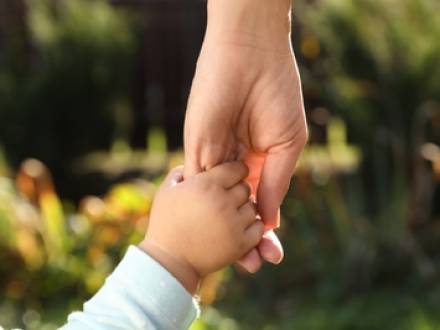Recent Blog Posts
Preparing for Mediation To Resolve Child Custody Disputes in Illinois
 When parents face disagreements about child custody, known in Illinois as parental responsibilities, the court may require them to participate in mediation before moving forward with a trial. Mediation provides a less stressful way to address conflicts, focusing on solutions that support the child’s best interests.
When parents face disagreements about child custody, known in Illinois as parental responsibilities, the court may require them to participate in mediation before moving forward with a trial. Mediation provides a less stressful way to address conflicts, focusing on solutions that support the child’s best interests.
With preparation, mediation can help avoid costly litigation and encourage cooperation between parents. Working with an experienced Arlington Heights, IL child custody attorney ensures that you enter mediation with the right strategy, documents, and goals.
Documents You Need for Child Custody Mediation in Illinois
Before attending mediation, you should gather documents that demonstrate your ability to meet your child’s needs. Some of the most important records include:
Do I Have to Share My Inheritance in an Illinois Divorce?
 Dividing property is arguably the most contentious step in a divorce. Each state has laws governing property division, and inheritance is a significant consideration for many couples. If and how it is divided depends on your circumstances. For help with your specific case, speak with an experienced Arlington Heights, IL property division attorney.
Dividing property is arguably the most contentious step in a divorce. Each state has laws governing property division, and inheritance is a significant consideration for many couples. If and how it is divided depends on your circumstances. For help with your specific case, speak with an experienced Arlington Heights, IL property division attorney.
How Is Property Divided in an Illinois Divorce?
Illinois follows the rule of equitable distribution. This means that shared property is divided based on what is fair rather than an equal split. The court looks at several factors when dividing assets, such as what you each make in income and what your individual needs are.
Under 750 ILCS 5/503, marital property includes most things either spouse acquires during the marriage. This includes income, homes, vehicles, retirement accounts, and even debts. However, some types of property, such as inheritance or gifts received by one spouse, may be excluded from the marital estate if certain conditions are met.
Will an Order of Protection Affect Child Custody in Illinois?
 In Illinois, orders of protection can significantly affect child custody, especially when safety is a concern. When requesting an order, you need to know how they interact with parenting plans and court decisions. If you are in the middle of a custody dispute and an order of protection has been filed, an Arlington Heights, IL order of protection attorney can help you understand how the order may affect your case.
In Illinois, orders of protection can significantly affect child custody, especially when safety is a concern. When requesting an order, you need to know how they interact with parenting plans and court decisions. If you are in the middle of a custody dispute and an order of protection has been filed, an Arlington Heights, IL order of protection attorney can help you understand how the order may affect your case.
Orders of Protection and Emergency Changes to Parental Responsibilities in Illinois
An order of protection is issued by a court to prevent abuse, harassment, or threats. If the alleged conduct involves a child or occurs in front of a child, the court may decide that the accused parent should not have parenting time or decision-making abilities while the order is in place. Under 750 ILCS 60/214, an Illinois judge has the power to include temporary child custody provisions in an order of protection if the judge believes doing so is in the child’s best interests. This can include giving you temporary sole decision-making authority or suspending parenting time altogether. These changes are meant to be short-term but can influence longer decisions regarding parental responsibilities later.
What Do Judges Consider When Determining Parenting Time in Illinois?
 Many parents rely on a court order to dictate the terms of their parental responsibilities agreement, which includes parenting time. If you have questions about how the court may view your case, an Arlington Heights, IL parental responsibilities lawyer can explain the laws and protect your rights. In Illinois, parenting time decisions are based on what is best for the child. Judges look at many factors to ensure the child’s interests are prioritized in the final custody decision.
Many parents rely on a court order to dictate the terms of their parental responsibilities agreement, which includes parenting time. If you have questions about how the court may view your case, an Arlington Heights, IL parental responsibilities lawyer can explain the laws and protect your rights. In Illinois, parenting time decisions are based on what is best for the child. Judges look at many factors to ensure the child’s interests are prioritized in the final custody decision.
What Does "Best Interests of the Child" Mean?
Part VI of the Illinois Marriage and Dissolution of Marriage Act (IMDMA) addresses the "best interests of the child" in Section 602.7. It is defined as the main standard courts use when deciding parenting time, also known as visitation, and other custody issues. It means the judges focus on what will help the child grow up safe, healthy, and emotionally stable.
How Can Mental Illness Impact Divorce in Illinois?
 Mental illness can impact several components of divorce proceedings in Illinois. It may affect custody, spousal support, and even property division. If you have questions about how mental health might affect your divorce process, an experienced Illinois divorce lawyer can help. Mental illness can complicate divorce. For that reason, having someone to guide you and protect your rights is invaluable.
Mental illness can impact several components of divorce proceedings in Illinois. It may affect custody, spousal support, and even property division. If you have questions about how mental health might affect your divorce process, an experienced Illinois divorce lawyer can help. Mental illness can complicate divorce. For that reason, having someone to guide you and protect your rights is invaluable.
Can Mental Illness Impact the Allocation of Parental Responsibilities in Illinois?
Mental illness can directly influence how the court divides parental responsibilities. It depends on whether it affects the parent's ability to care for the child safely. Section 602.5 of the Illinois Marriage and Dissolution of Marriage Act says that courts must make these decisions based on what is best for the child. In doing so, they consider several factors, including the mental and physical health of all parties involved. Judges even order psychological evaluations to assess a parent’s fitness when mental health concerns arise.
How Can Cheating Affect Divorce in Illinois?
 When adultery happens in a marriage, it often leads to deep emotional pain, making divorce even more contentious. However, when it comes to Illinois divorce law, many people are surprised to learn that cheating does not always have a major legal impact. If you are concerned about how an affair may affect your rights during the divorce process, an experienced Illinois divorce attorney can help you protect your interests in every area, from spousal support to child custody, now called "parental responsibilities" in Illinois.
When adultery happens in a marriage, it often leads to deep emotional pain, making divorce even more contentious. However, when it comes to Illinois divorce law, many people are surprised to learn that cheating does not always have a major legal impact. If you are concerned about how an affair may affect your rights during the divorce process, an experienced Illinois divorce attorney can help you protect your interests in every area, from spousal support to child custody, now called "parental responsibilities" in Illinois.
Do You Have To Prove Fault To Get a Divorce in Illinois?
Illinois is a no-fault divorce state. That means spouses no longer need to prove infidelity, cruelty, abandonment, or any other form of wrongdoing to get a divorce. Under the law regarding the dissolution of marriage, 750 ILCS 5/401(a), the only recognized reason for divorce is "irreconcilable differences." Once both spouses live separately for at least six months, the court assumes irreconcilable differences exist, and no other proof is needed.
2025 Changes to the Illinois Marriage and Dissolution of Marriage Act
 Getting through a divorce in Illinois can be complicated and overwhelming. If you are initiating divorce or considering the modification of post-decree matters, understanding the most recent changes to the Illinois Marriage and Dissolution of Marriage Act is important. The laws that govern spousal maintenance, child support, parental responsibilities, and relocation were updated in 2025 and could directly impact your case. An experienced Illinois divorce attorney can help you make sense of these rules, protecting your rights through every step of the legal process.
Getting through a divorce in Illinois can be complicated and overwhelming. If you are initiating divorce or considering the modification of post-decree matters, understanding the most recent changes to the Illinois Marriage and Dissolution of Marriage Act is important. The laws that govern spousal maintenance, child support, parental responsibilities, and relocation were updated in 2025 and could directly impact your case. An experienced Illinois divorce attorney can help you make sense of these rules, protecting your rights through every step of the legal process.
Changes to Spousal Maintenance in Illinois
As of January 2025, Illinois no longer allows spousal maintenance, commonly known as alimony, to be paused because the paying spouse is incarcerated. Changes to statute 750 ILCS 5/504 of the Illinois Marriage and Dissolution of Marriage Act removed language stating that no support would accrue while a party is imprisoned. This change closes a legal loophole that previously allowed some payors to avoid building up back payments when serving time. However, in some cases, the court may find a compelling reason to suspend or modify payments.
4 Common Financial Complications in Family Law and Divorce
 Many of the decisions you need to make in family law and divorce involve your finances. The complex emotions that are usually present in these situations are not hard enough to deal with, and some common complications can make these matters even more challenging. Fortunately, our experienced Arlington Heights, IL family law attorneys know how to overcome these challenges and can help you navigate your issues.
Many of the decisions you need to make in family law and divorce involve your finances. The complex emotions that are usually present in these situations are not hard enough to deal with, and some common complications can make these matters even more challenging. Fortunately, our experienced Arlington Heights, IL family law attorneys know how to overcome these challenges and can help you navigate your issues.
Which Divorce and Family Law Decisions Involve Finances?
Finances are heavily involved in asset division, debt allocation, child support, and spousal maintenance matters. Modifications and enforcement can also be based on financial concerns. When complications affect the way you resolve these issues, you need the assistance of a competent lawyer to protect your interests during the process.
Wasting or Hiding Assets
What Is the Difference Between Prenuptial and Postnuptial Agreements?
 The primary difference between prenuptial and postnuptial agreements, also known as prenups and postnups, is timing. The goal is to protect both parties in marriage and divorce, and if carefully crafted, a prenup or postnup can be a great asset to your financial future. If you have questions about getting a prenup or postnup, our Arlington Heights, IL family law attorneys can offer invaluable insight and help you create an ironclad contract that will make you and your spouse feel comfortable.
The primary difference between prenuptial and postnuptial agreements, also known as prenups and postnups, is timing. The goal is to protect both parties in marriage and divorce, and if carefully crafted, a prenup or postnup can be a great asset to your financial future. If you have questions about getting a prenup or postnup, our Arlington Heights, IL family law attorneys can offer invaluable insight and help you create an ironclad contract that will make you and your spouse feel comfortable.
Are Prenuptial and Postnuptial Agreements Essentially the Same in Illinois?
Prenuptial and postnuptial agreements outline how to handle key aspects of the divorce process, such as asset division, debt responsibility, and spousal maintenance, making divorce proceedings less contentious and more straightforward. The difference between a prenup and a postnup is in the timing, reflected by their names. A prenup is signed before the marriage, and a postnup is signed after. The laws governing both are outlined in the Illinois Uniform Premarital Agreement Act (IUPAA) and the Illinois Uniform Marital Property Act (IUMPA).
What Does a Guardian ad Litem Do in an Illinois Custody Case?
 A guardian ad litem (GAL) is a central figure in Illinois family court cases involving children. Family disputes can be challenging for children, and without support, their voices can be buried in the contentious atmosphere. An Arlington Heights, IL family law attorney can help you understand the role of a GAL, how they may impact your case, and how best to communicate with them.
A guardian ad litem (GAL) is a central figure in Illinois family court cases involving children. Family disputes can be challenging for children, and without support, their voices can be buried in the contentious atmosphere. An Arlington Heights, IL family law attorney can help you understand the role of a GAL, how they may impact your case, and how best to communicate with them.
What Is a Guardian ad Litem?
A guardian ad litem is a lawyer who represents the child and their purpose is to investigate and make recommendations to a judge about what is best for the child. You often see GALs in cases involving divorce, child support, and the allocation of parental responsibilities, more commonly known as child custody. The court will often appoint a GAL in cases when the parents cannot agree on the terms of parental responsibilities or when the child’s interests seem to be at risk.

















